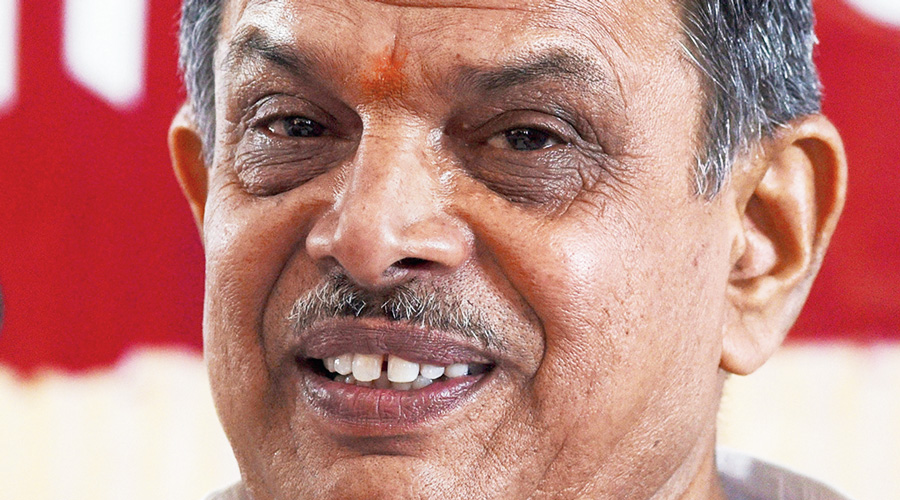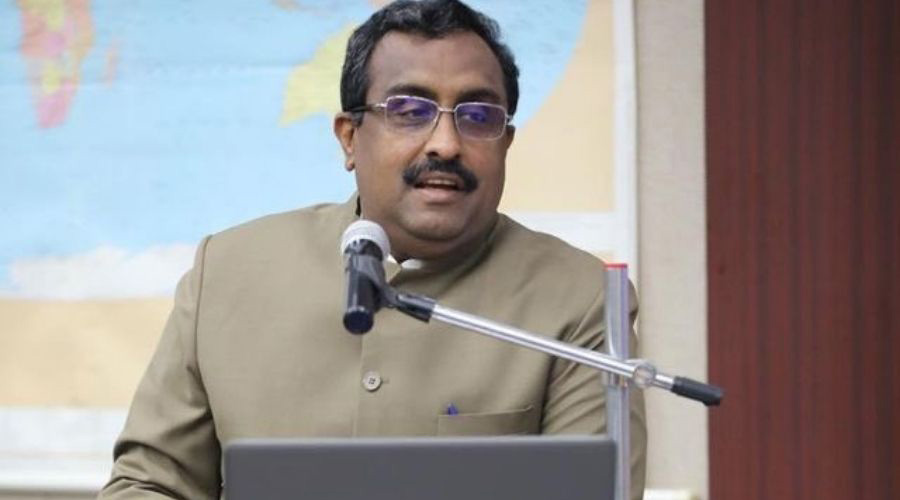Dattatreya Hosabale, seen as close to Prime Minister Narendra Modi, was on Saturday elected sarkaryavah (general secretary) of the Rashtriya Swayamsevak Sangh for the next three years.
Sangh parivar sources said Modi had tried to get Hosabale elected to the post since assuming power in 2014 and had now succeeded after failing in 2015 and 2018.
Although the sarkaryavah is the second in command after the RSS chief or sarsanghchalak, he practically runs the organisation as the executive head. The sarsanghchalak is the ideological head, functioning as “philosopher and guide”.
Hosabale, a 65-year-old native of Karnataka, was elected at the triennial meeting of the Sangh’s highest decision-making body, the Akhil Bharatiya Pratinidhi Sabha, in Bangalore.
In the wider Sangh parivar, Hosabale’s elevation is being seen as Modi tightening his grip over the ideological parent that is known to exert influence on the affairs of the BJP and its government.
Modi has already seen off his fierce critic Praveen Togadia, who was ousted as international president of the Vishwa Hindu Parishad in an election in 2018.
Till now, certain RSS lobbies had been able to thwart Modi’s efforts to get Hosabale elected Sangh general secretary, arguing the ideological parent needed freedom from political interference.
This line of argument had allowed the outgoing general secretary, Suresh Bhaiyyaji Joshi, 73, to hold on to the post for four consecutive three-year terms since 2009.
However, after Modi led the BJP to an overwhelming victory in the 2019 general election, it became virtually impossible to block his choice, Sangh sources said.
Modi is now being seen as the undisputed leader not only of the BJP and the government but of the entire Sangh parivar, emerging as its “ideological mentor and guide”, a senior Sangh official said.
Unlike Atal Bihari Vajpayee whose reign as Prime Minister was marked by battles of attrition with the Sangh, Modi has succeeded in keeping the parent body happy and gradually gain sway over it.
Indeed, by fulfilling the Sangh’s longstanding ideological commitments, such as those on the Ram temple and Article 370, Modi has in the eyes of many risen above the ideological parent.
The RSS nowadays rarely criticises any government decision it does not like. For instance, sources said, the Sangh feels the government has failed to handle the farmers’ protest well but doesn’t dare say so.
At the Bangalore meeting, the Sangh’s official position was that “anti-national and antisocial” elements were not allowing the farmers’ movement to end.
Many in the Sangh and the BJP, however, said that Hosabale had earned the post given his talent, and that his organisational skills would be crucial to the party’s expansion efforts in the south.
“Dattatreyaji hails from Karnataka and can speak Hindi, English, Sanskrit, Kannada and Tamil fluently. These skills are needed if the Sangh and the BJP are to expand their influence in south India,” a BJP leader said.
He underlined that the current BJP general secretary (organisation), B.L. Santosh, too was from Karnataka.
The BJP is keen to spread its influence beyond Karnataka to other southern states such as Tamil Nadu, Kerala, Andhra Pradesh and Telangana.
Hosabale, a former student of English literature, is known for his ability to articulate the Sangh’s ideological positions to the western world and had mentored RSS groups operating in America and Britain.
He is also regarded as a staunch backer of the government’s policies under Modi, such as the National Register of Citizens and the Citizenship Amendment Act, and has strong views on religious conversions.
“In India secularism has been about minority appeasement and it has been anti-Hindu,” Hosabale had said in the past. He had, however, backed the #MeToo movement.
As the new sarkaryavah, Hosabale will be in charge when Modi seeks re-election in 2024. Being only 65, he is expected to get at least a second term and helm the RSS when the organisation celebrates its centenary in 2025.











